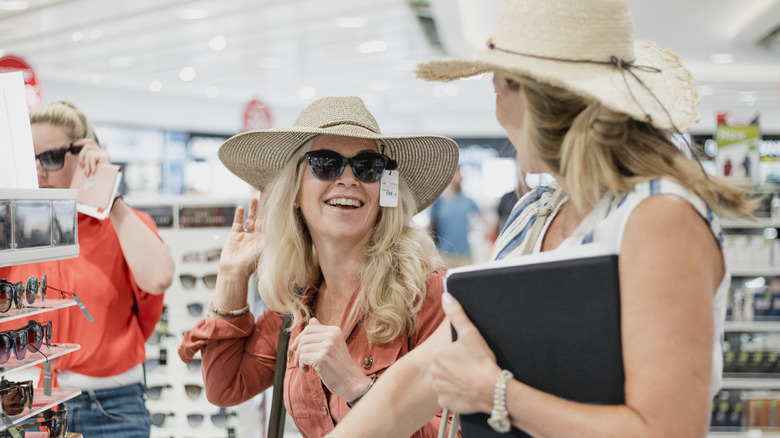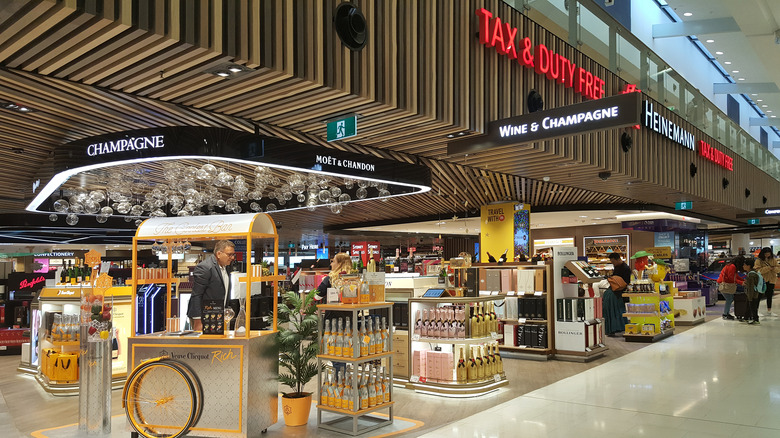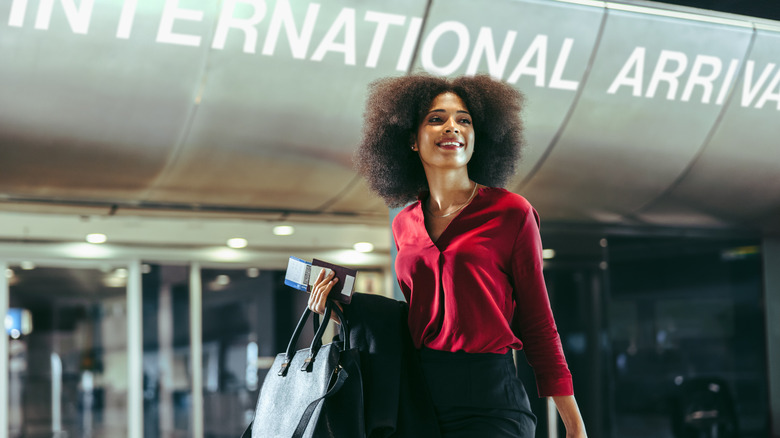What Happens If You Go Over The Limit On Duty-Free Purchases While Traveling
Isn't it frequently the case that you forget to buy something before heading to the airport? Most likely, you missed getting souvenirs or gifts for family and friends back home, so last-minute shopping is in order. And, the best place to complete your checklist of things to buy before boarding the plane is a duty-free shop in the airport terminal. (Of course, you can also get duty-free items at sea terminals, during an international flight, or aboard cruise ships.)
Purchasing duty-free items is also a good way to get rid of any local foreign currency you might still be holding on to. Or, you know, just to while away the time before your flight if money is not an issue for you. What's great about duty-free items is you won't be paying any duties and taxes when you buy them and when you arrive in the country if you meet the exemption criteria of the U.S. Customs and Border Protection (CBP). Depending on where you're coming from, you can enjoy bringing home from $200 to $1,600 worth of items duty-free and tax-free.
Duty-free exemptions
The CBP's website details the rules on how much you can bring back to the U.S. without incurring duties and taxes. Unless you've bought a piece of fine art (which is always duty-free), we recommend reading through the rules, especially those surrounding alcoholic drinks, cigarettes, and cigars, for a fuller understanding and fewer mishaps.
You can carry home $200 worth of duty-free items for personal or household use, including those you bought as gifts (except business or commercial gifts). You fit this exemption even if you've been abroad for at least 48 hours or at least twice within 30 days. If you're arriving from the Caribbean Basin, Andean countries, or other destinations, excluding Guam, American Samoa, and the U.S. Virgin Islands (what the CBP calls U.S. insular possession), you're allowed $800. The only requirement for this is that you bring the items with you as accompanied baggage on your flight. Those traveling from Guam, American Samoa, and the U.S. Virgin Islands, however, get the highest amount of exemptions at $1,600.
Families traveling together get a total limit of $400, but the $200 exemption cannot be split between everyone. That is, only two persons will get to carry duty-free items worth $200 each for a total of $400 for the entire family. And, if you mailed your duty-free purchases to your U.S. residence and their value is below $200, you don't have to pay any duties or taxes.
Going over the duty-free exemptions
When you break the CBP's rules, you could pay duties or taxes, or have your items taken by the CBP when you go over the mandated limit. And, don't even think about not declaring items to avoid paying duties and taxes because if you're found out, the CBP will confiscate the items.
If you happen to bring home an item with a price tag that's over $200, you'll have to pay the corresponding duties and taxes for the full value. That is, if you brought one or more items totaling $250, the CBP won't be deducting $200 from the total. Instead, you will be paying duties and taxes for the full $250.
When it comes to alcoholic beverages from Andean countries or the Caribbean Basin, you're allowed a maximum of 2 liters as part of your $800 exemption, provided 1 liter was produced from the aforementioned nations (see the list at the CBP website). For those coming from the U.S. insular possessions (Guam, American Samoa, the U.S. Virgin Islands), you're allowed up to 6 liters of alcoholic beverages as part of your $1,600 duty-free items. The condition is to include at least 4 liters bought from the U.S. insular possessions and at least one of them is a local product. Anything beyond this and you will have to pay a 1.5% duty rate and IRS taxes.


